Breakups have always been emotionally and mentally draining, but for today’s generation that is Gen Z breakups (born between the late 1990s and early 2010s) and heartbreak looks different.
In an era of social media, dating apps, instant messaging, and constant notifications, moving on from someone often means navigating both emotional pain and a digital minefield.
From my own experience and from talking to friends, I’ve noticed that Gen Z breakups don’t just “end a relationship”—they have to manage an entire online presence connected to that person. Whether it’s old Instagram photos, reel drafts, or chat histories, the reminders are everywhere.
Understanding Gen Z’s experience of breakup.
For previous generations or even millennials a breakup often meant fewer reminders which meant no constant updates about your ex’s life unless you bumped into them.
But for Gen Z, heartbreak is public. Mutual friends still comment on their posts, their “last seen” is visible, and new photos with other people can appear within hours.
Expert on Gen Z breakups– Psychologist Dr. Amelia Torres explains, “Social media changes the pace of healing. Your brain is constantly fed new triggers, making it harder to detach.”
I’ve seen friends spend hours analyzing Instagram captions or wondering why their ex liked a particular post. It’s emotional overthinking amplified by digital connectivity.
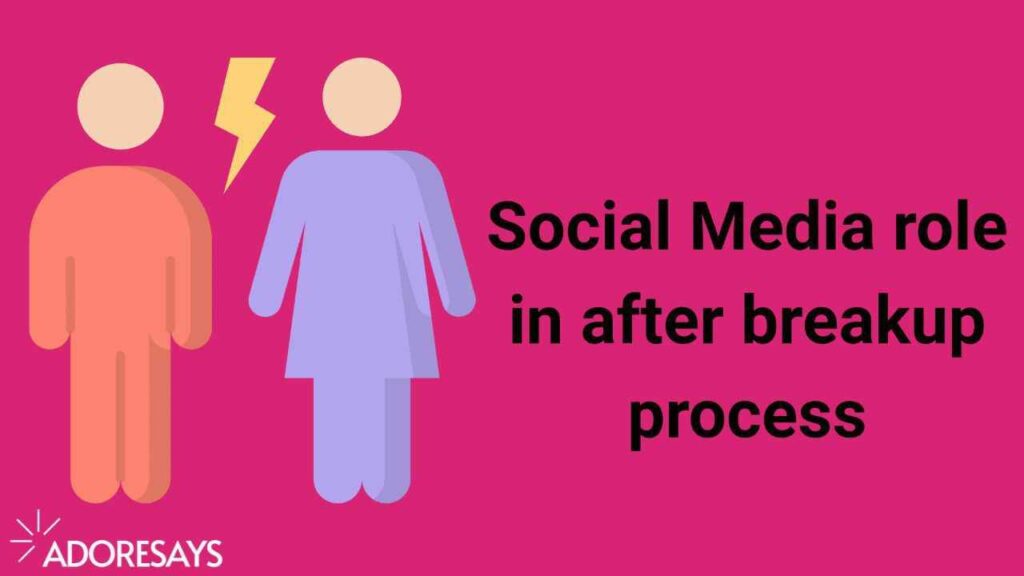
Emotional stages Gen Z Go Through.
Everyone’s journey is different but these stages appear often in every Gen Z breakups :
a) The Overthinking loop.
Replaying old memories, re-reading older conversations , and decoding emojis. I once spent two weeks convincing myself that a cryptic Instagram Story was about me but in reality it wasn’t.
b) The Digital Attempt of Detox.
Muting, unfollowing, or even blocking the ex to avoid daily emotional breakdowns. Many therapists recommend this step to protect mental health.
c) The “Healing Era.
Posting selfies, quotes, or creative content to show that you are moving on and trying to heal yourself . This isn’t just vanity, it’s a way to reclaim your identity.
d)Self-Awareness & Reflection.
Eventually, most of the people realize what worked, what didn’t, and what they truly want while moving forward. Social – Media doubled face Sword. Social media can work as a healer or a damager both.
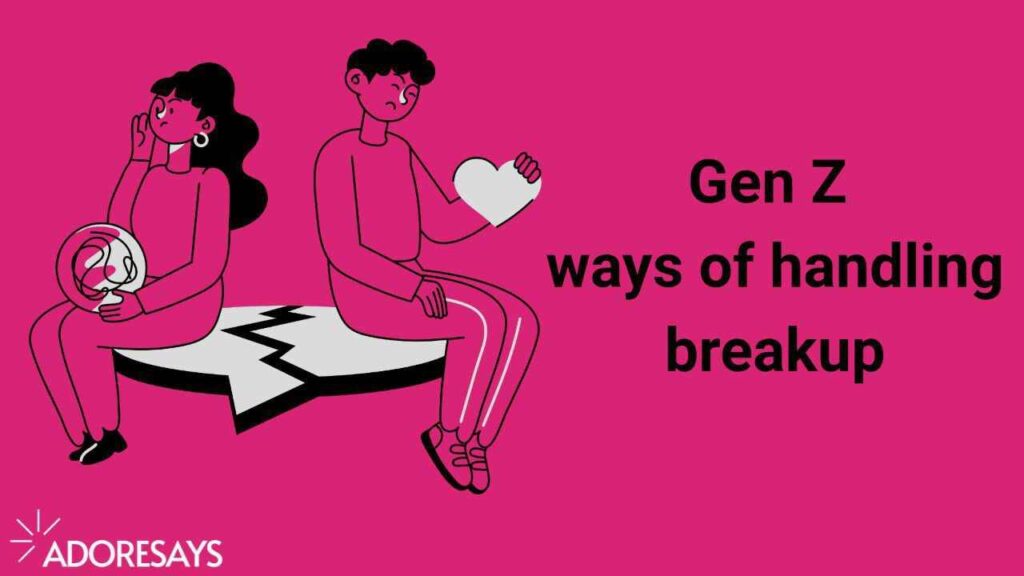
Helpful Side:
- Through social media you can access an unlimited number of motivational videos and breakup podcasts which helps you in your healing process.
- Online support groups that make you feel less alone and listen to you without judging you.
- Learning new skills or restarting your old hobbies through digital communities.
Also Read: Red flag Vs Green flag in a relationship.
Harmful Side:
- Through social media you can easily stalk your ex life which becomes a barrier in your healing process and make you keep stuck in the past.
- If you see them moving on faster than you expected or before you ,then it will damage you to the core.
- After watching numerous happy couples posting you will start comparing your love life to others.
From my own personal observation and experience I would suggest that the key is digital boundaries which is muting their posts, unfollowing them or blocking them if needed and avoiding late night profile checks.
Coping mechanisms Gen Z use.
- Online Communities made up for Emotional Release:
Many Gen Z people use Reddit, X (Twitter), and private Instagram pages to share feelings anonymously with the world. I’ve joined breakup subreddits before, and the mix of humor and honesty made me feel understood instantly.
2. Turning Pain Into Creativity:
Poetry, painting, song writing, or short films on Instagram helps in transforming emotions into art which is a classic Gen Z healing tool.
3. Therapy & Mental Health Apps:
Thanks to platforms like Better Help, Calm, and Headspace, therapy is no longer seen as a last resort for the healing process .
4. Solo Adventures:
Many Gen Z take short trips or try solo dining for the first time , it helps as both a distraction and a confidence booster.
Studies from the American Psychological Association show that structured mental health support speeds emotional recovery.
Era of soft blocking.
Instead of publicly unfollowing their partner, Gen Z often “soft blocks” them which means they remove the ex from the follower list while keeping things low drama.
Other digital boundaries include:
- Muting stories & posts so that they won’t get notified about their new updates every time.
- Turning off read receipts so that they can read their texts without knowing them.
- Avoiding passive-aggressive posting wars which only creates online drama and chaos.
A therapist friend once advised me, “Distance is not about punishing them, rather it’s about protecting your peace.” That advice stuck with me.
Healthy Healing Tips For Gen Z.
While revenge glow-ups and cryptic Instagram posts might feel satisfying but true healing requires internal change:
- Reflect Before Reacting – Write feelings down before sending that “I miss you” text which will help you in understanding yourself better.
2. Stay Connected Offline – Friends and family provide grounding in a way likes and DMs can’t, so try to stay away from socials a bit and involve yourself more in offline boundaries.
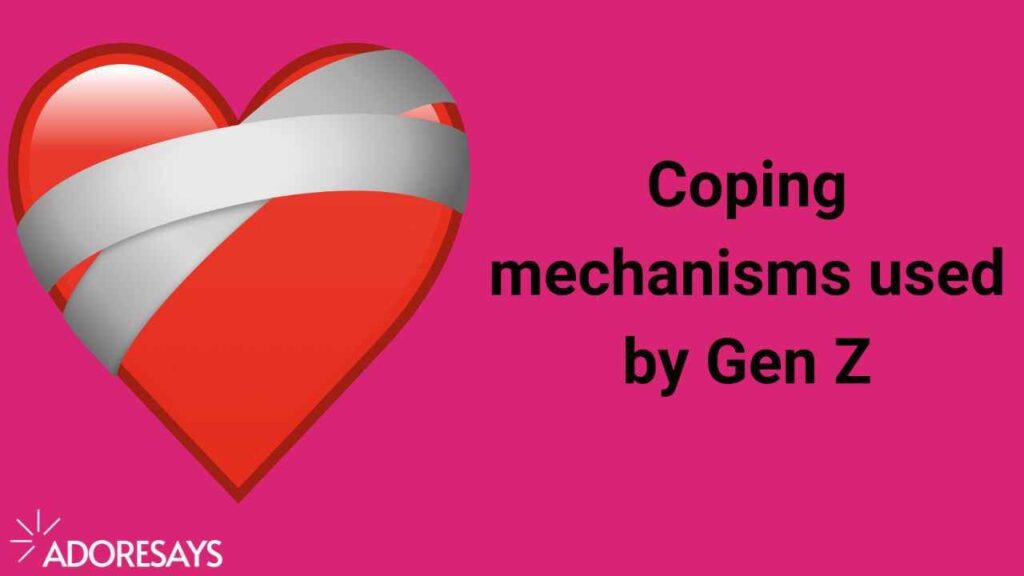
3. Rebuild Routine – Structure brings emotional stability so try to rebuild your routine which will help you in your healing process.
4. Limit Digital Overload – Avoid checking mutual friends’ posts too often to check on their updates.
5. Seek Professional Guidance – Even a few therapy sessions can shift your perspective , so try some professional help without the fear of getting judged.
Why Gen Z has a different way of healing unlike millennials.
Gen Z grew up with digital intimacy and their relationships are often documented in real time, hence Gen Z breakups have a different way of healing.
This means the breakup isn’t just losing a person, it’s dismantling a story which was shared online. That’s why the healing process is a blend of technology, mental health awareness, and creative expression. It’s about balancing public image and private emotions while learning to move forward in their life.
Conclusion.
Breakups were never easy and they will not be in future too but Gen Z is finding their unique ways to navigate them through creative outlets, therapy, community support, and healthy digital boundaries.
If you’re going through one, remember: heartbreak is temporary, but self-discovery is life long. Take the time to understand yourself and your feelings ,and let this chapter be the one that shapes your growth.
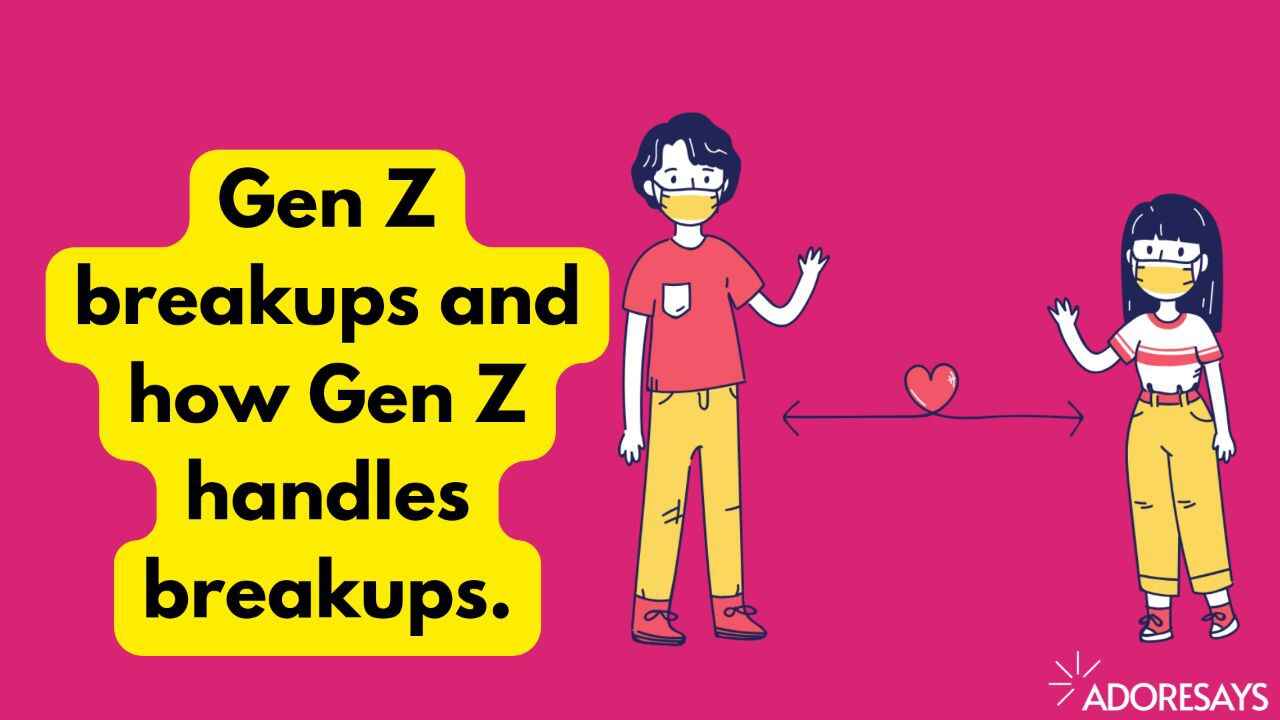
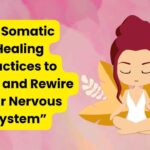

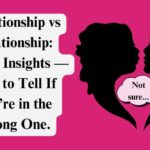

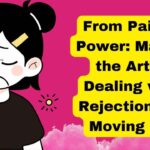
Leave a Reply